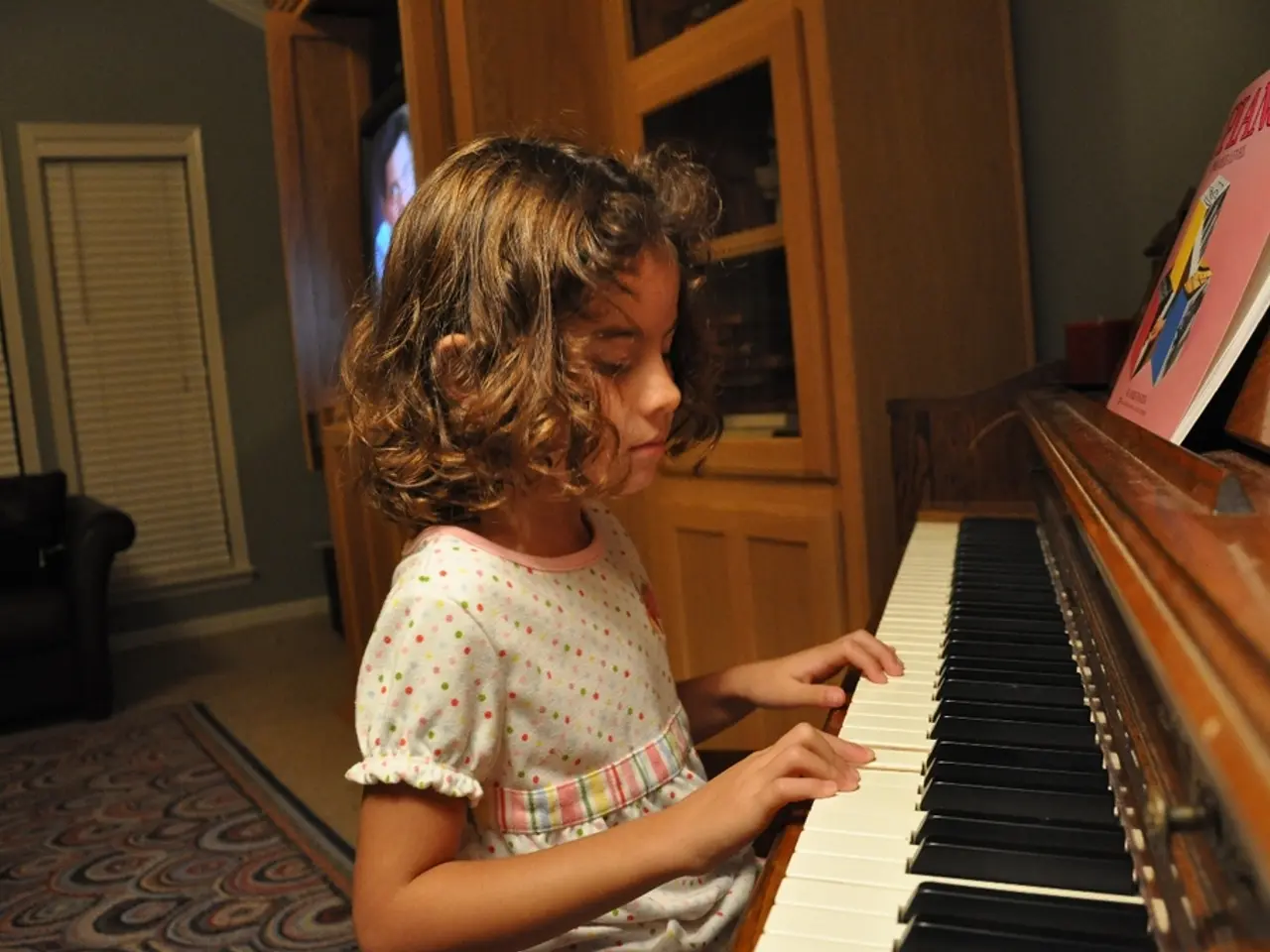Five Potent Strategies to Foster Verbal Growth in Juvenile Children
Boosting Language Skills in Young Children: Expert-Recommended Strategies
In the journey of nurturing language development in young children, parents and caregivers play a pivotal role. Here are some expert-recommended strategies to help children improve their communication skills and set them up for success in school and life.
From infancy, engaging in warm, responsive conversation is crucial. Narrate daily routines, talk during feeding, dressing, and cuddling, and use gentle, expressive tones to help babies connect words with actions and emotions. Expand on children’s words by introducing richer vocabulary and more complex sentences, such as responding to a toddler's "car" with "Yes, a red car. The car is going fast."
Hands-on language activities are also beneficial for toddlers. Try matching objects to words through language baskets, classification games (grouping animals or colors), and giving two-step instructions to practice listening and sequencing. Reading aloud regularly with books that have fun language, vivid characters, and engaging stories supports vocabulary expansion, especially for preschoolers.
Follow the child’s interests to introduce new words related to their passions, making learning vocabulary more meaningful and engaging. Play with language through nursery rhymes, songs, and word games, like rhyming and clapping syllables, which help phonological awareness and make language learning playful. Model simple sentences during pretend play and encourage children to speak in full sentences as they grow.
Making everyday experiences opportunities for language learning is essential. Describe what is happening during outings or chores, make observations, and use specific words instead of general ones. This approach helps children learn new words in a fun and meaningful way.
Experts also highlight that repetition and frequent use of new words in various contexts help retention and strengthen vocabulary networks in the brain. Timely intervention is crucial; speech and language delays are treatable, leading to better academic and social outcomes. Speech therapy is also important for kids who might be slow to talk, as it helps them catch up and communicate better.
By creating a world where your child can learn through social experiences, you help kids learn to share, listen, and express feelings. Going outside is full of chances to learn new words, as parents can name plants, animals, and things they see. Mealtimes are great for learning new words, as parents can point out the colors, shapes, and cooking steps.
Positive nonverbal cues can help a child learn life skills and feel loved. Reminders are important for language confidence, as they help students stay organized and on task. By 12 months, if a child is not using gestures like pointing or waving bye-bye, they should be assessed. By 18 months, if a child prefers using gestures over vocalizations to communicate, they should be monitored.
By 2 years, if a child is not able to follow simple directions, they should be examined. By 2 years, if a child is only imitating speech or actions, and not producing words or phrases spontaneously, they may have a speech delay. By 2 years, if a child is saying only some sounds or words repeatedly and not using oral language to communicate more than their immediate needs, they may have a speech delay.
By visualizing success, children can increase their language confidence, as it helps them see their goals and believe in themselves. Good, age-right content like "Sesame Street" and "Bluey" can help with talking, colors, numbers, and life lessons. Some apps and programs can help with language learning, but it's important to know their limits. Kids start to understand screens better after age two, thanks to screen time.
Setting good digital limits is crucial, with the World Health Organization and the American Academy of Pediatrics saying kids should watch screens for only one hour a day from age 2 to 5. By focusing on language, parents give their kids a strong start in school, fostering a love for language and helping kids grow and explore the world around them. By using different strategies, parents can help kids improve their communication skills and set them up for success in school and life.
- Engaging in warm, responsive conversations about science topics, like animals or plants during outings, can help children expand their vocabulary and improve their communication skills.
- By playing educational games that focus on social skills, such as friendship building or respect simulations, children can develop essential life skills and improve their ability to navigate relationships effectively.
- To foster a healthy lifestyle, parents can use mealtime as an opportunity to teach children about nutrition and eating well-balanced meals while reinforcing communication skills through description and dialogue.
- Proactively working on a child's communication skills, including setting clear boundaries, has lasting effects on their education and self-development.
- Consistently offering opportunities for expression and encouraging children to articulate thoughts and feelings can help develop strong communication skills, leading to future success in school and in their personal lives.




